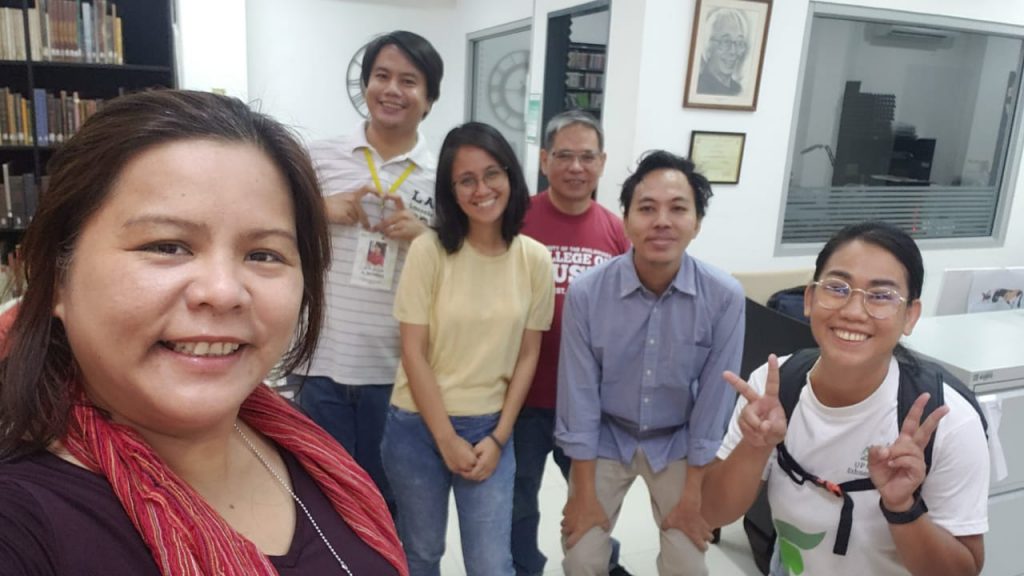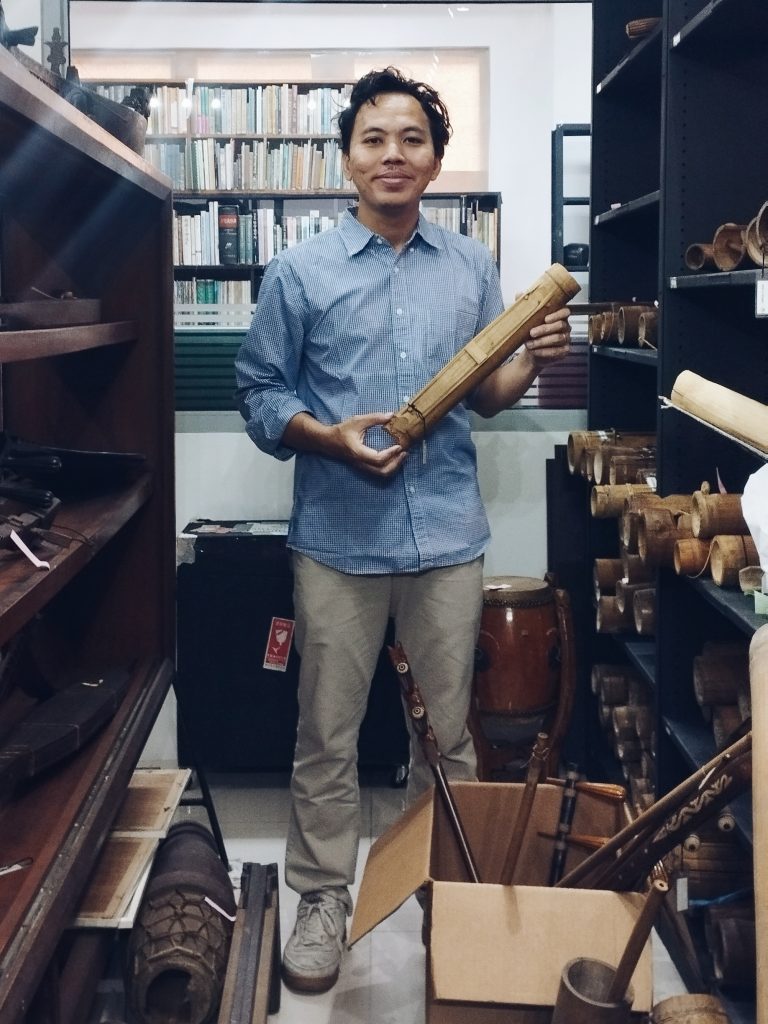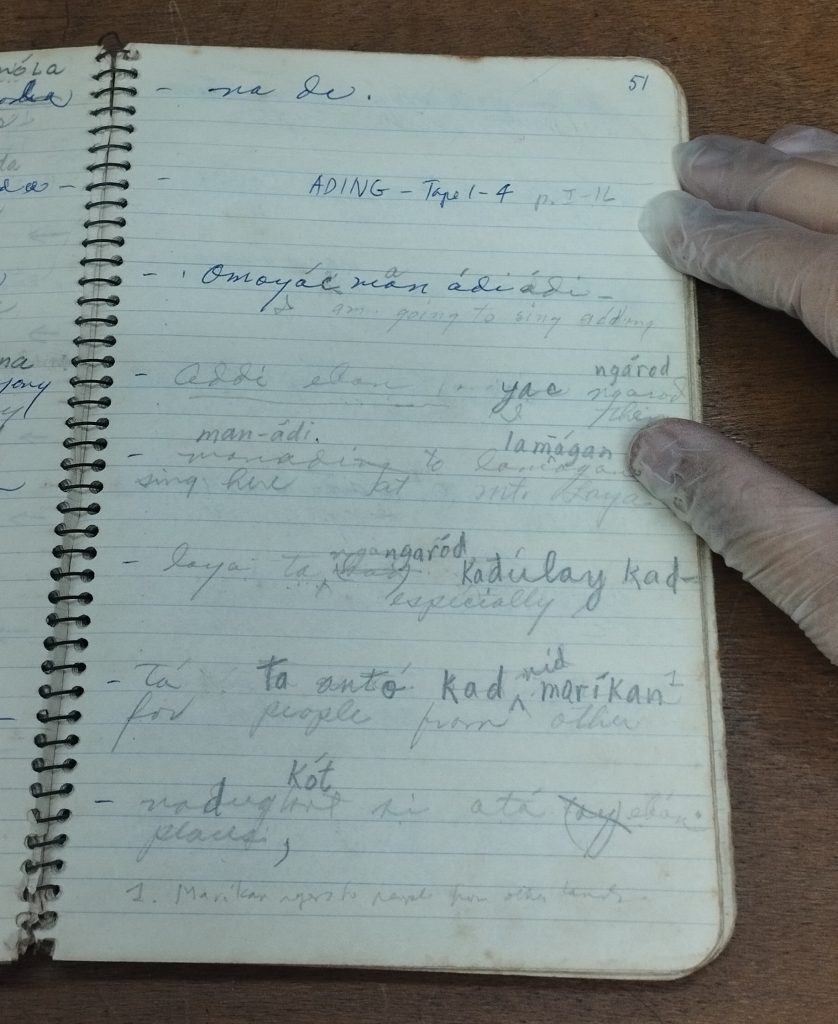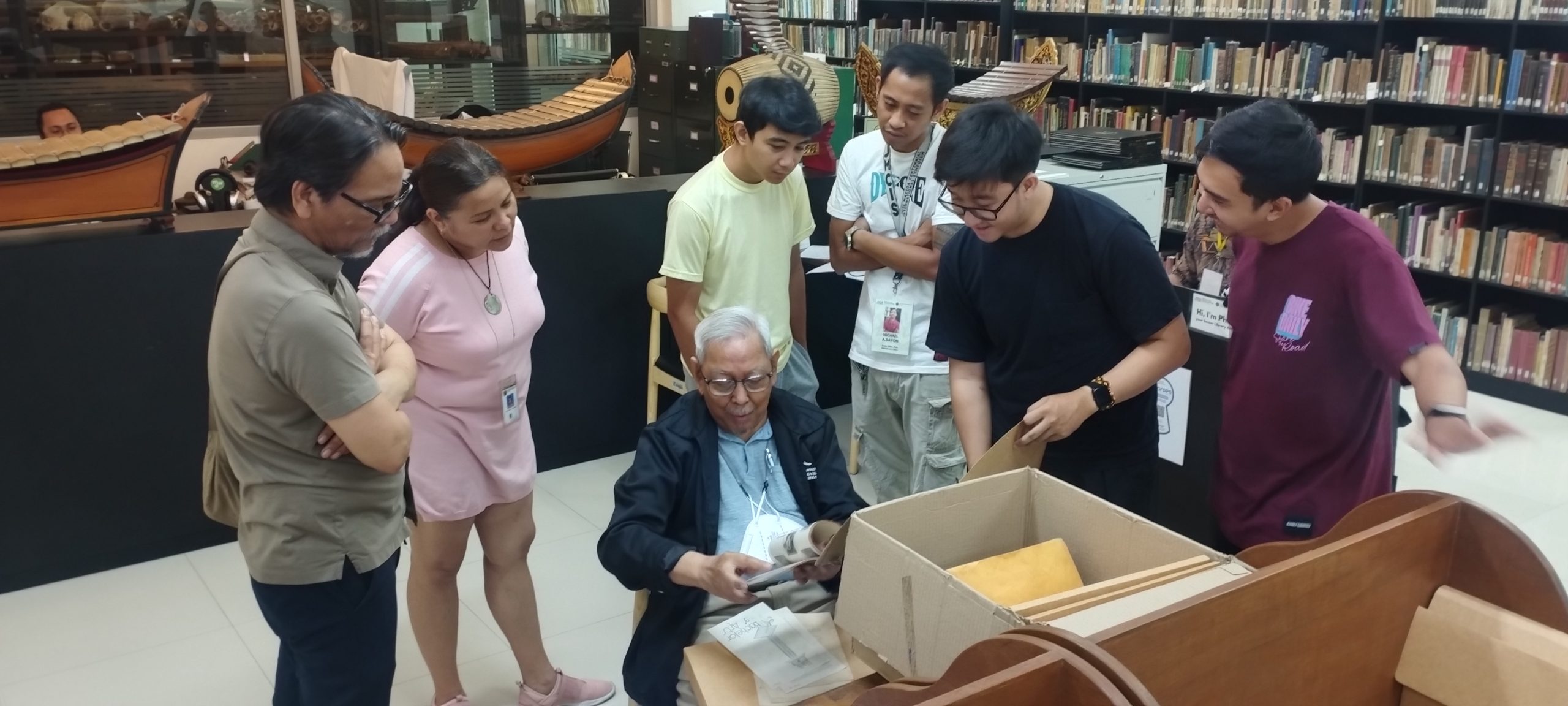Cover photo: Examining materials with National Artist Ramon P. Santos, the former Executive Director of the UPCE together with current UPCE Director, LaVerne David C. de la Peña.
The UP Center for Ethnomusicology (UPCE) welcomed Decolonizing Southeast Asian Sound Archives (DeCoSEAS) Visiting Fellow Gardika Gigih, Indonesian composer, for a three-month fellowship at the Center. The program encourages scholars to explore partner archives of the DeCoSEAS to enrich their practice, performance, and scholarship. As part of the DecCoSEAS initiatives, the fellows are encouraged to share their recommendations on improving stakeholder access to these rich collections.
Gigih worked with the archives of the UPCE most specifically the works of Filipino composers and the materials that were used in these. His abstract, Dari Akar ke Mekar: Studying Filipino Traditional Music Cultures and Its Inspiration Towards Filipino Contemporary Composer, was clear in its intention to learn about how localities, communities, and tradition would be a source of inspiration for music makers in the Philippine contemporary music scene, a creative pathway to shape voices as a collective awareness in the postcolonial context.



In an online interview, Gigih expressed that he first heard about the DeCoSEAS fellowship from Bilqis Hijjas, the director of Rimbun Dahan Residency in Kuala Lumpur, Malaysia. He saw this as an opportunity to explore Filipino composers, knowing that the UPCE is one of the partner institutions of DeCoSEAS.
His fascination with Filipino composers began as a student studying composition at the Indonesian Institute of Arts. During his studies, he heard the works of Filipino contemporary composers in Yogyakarta Contemporary Music Festival 2009. During that time, he also met young Filipino composers, AJ Villanueva, Feliz Anne Macahis, Juro Kim Feliz, and Marie Luis Calvero This experience led his interest further to learn about the works of National Artists Jose Maceda and Ramon Santos, including the younger generation of Josefino “Chino” Toledo, Jonas Baes, and current Director of the UPCE, LaVerne David C. de la Peña.
Some of the UPCE materials explored by Gigih were works of composers like Santos’ Ba-Dw sa Ka-Poon-An, de la Peña’s “Si Suan, Si Suan” in collaboration with Amelia Lapeña-Bonifacio, and Maceda’s Ading. He further explored some of the indigenous traditions that inspired the creation of these compositions. The ading of the Kalinga, for example, is “a solo rendition of the pangat (leader) to welcome guests, settle disputes and discuss current issues during weddings, peace-pact celebrations”.
Gigih said that the Filipino composer has a “unique voice”, a strong sonic identity that he could not readily pinpoint. These composers incorporated idioms of Filipino traditions into their music, but in the contemporary context. Through the DeCoSEAS fellowship, he could finally discover for himself what made Filipino contemporary music exceptional. Immersing into the wealth of archives at the UPCE and encountering the sounds of different Philippine ethnolinguistic groups and studying the scores of Filipino contemporary composers was a unique opportunity that filled Gigih with gratitude and wonder. He also interviewed the composers about their creative process, and inspirations, with plans to publish this interview as a series of podcasts soon.
Moving forward, the fellowship inspired Gigih to continue not just his composition, but also study ethnomusicology further. He wishes to experiment not only gamelan composition, representing his heritage but also multicultural composition – combining the different cultural sonorities he has encountered. He hopes to collaborate more with musicians and creators from around the world.
This is also influenced by his memorable encounter with National Artist for Music and former UPCE Executive Director, Dr. Ramon Pagayon Santos: The young composers should learn the traditional, and get the spirit, the philosophy, and the concepts of why we have these expressive traditions
To learn more about Gigih’s fellowship, please visit:
https://www.decoseas.org/people/gardika-gigih
Gigih’s DeCoSEAS Fellowship final report:
https://www.decoseas.org/initiatives/fellowships/dari-akar-ke-mekar-studying-filipino-traditional-music-cultures-and-its-inspiration-towards-filipino-contemporary-composer
Gardika Gigih wishes to express his thanks to the entire UP Center for Ethnomusicology team for their kind support: Dr. LaVerne de la Peña , Ate Sol Maris Trinidad, Roan May Opiso, Jon-Philip Noveras, Grace Ann Buenaventura, David Dino Guadalupe, Benedic Justine Velasco, Michael Dayon, and Jayvie Andaya, James Dan Gazmin, Janine Liao, John Steven Verrosa, and Jose Alfonso Ignacio Mirabueno

